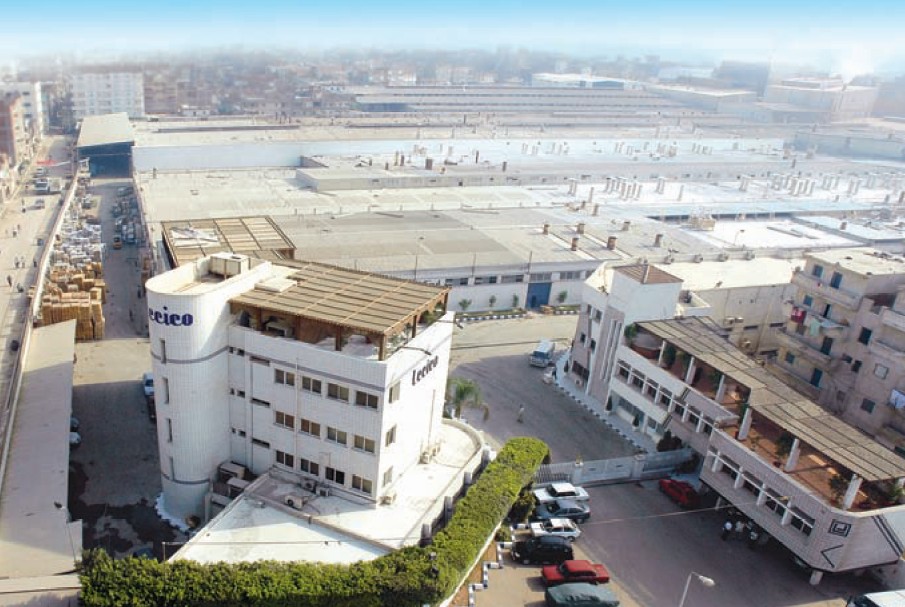The Egyptian Natural Gas Holding Company (EGAS) is to put in place recently approved exemption of natural gas monthly consumption bills for industrial sector companies that have paid off their dues to the Company.
EGAS said that the factories that have yet to pay their dues of monthly bills, the exempted value will be deducted from their debts.
An EGAS source told Daily News Egypt that the Ministry of Petroleum has informed the company to implement the exemption immediately with the aim to stimulate Egypt’s industrial sector. The EGAS’ Department of Internal Trade began calculating the values of exemptions according to the decision for each factory separately.
The source explained that the decision for exemptions will also include the delay fines imposed on factories from 2009 until the end of 2020. The step comes as part of a bundle of measures to counter the challenges facing Egypt’s economy due to the ongoing novel coronavirus (COVID-19) pandemic.
The source added that several cases regarding debts filed against EGAS by industrial sector companies came to a close. The government has settled these debts with exemptions worth EGP 5.3bn.
Minister of Petroleum Tarek El Molla said the decision to put in place exemptions and facilities granted to natural gas users in industry include exempting them of EGP 5.3bn owed to the oil sector. These debts have been attributed to contractual clauses in the supply of natural gas to factories.
El Molla added that a bundle of procedures have been applied to clauses in contracts that have already been concluded. This includes exempting all clients from paying the penalty, dating back to 2009.
All industrial customers also now have an exemption for 65% of the penalty stipulated in contracts which should be applied if the customer withdraws quantities of natural gas that exceed contractual quantities.
Furthermore, all clients are now covered by an exemption of 50% of the fines applied due to late payment. This is due to all debts owed being scheduled and paid according to the applied methods.
The Ministry of Petroleum said that, starting from next week, the petroleum sector will start implementing the exemption mechanisms granted to public and private sector natural gas customers. The move marks the start of activating the exemption procedures.
The ministry added that it has taken the initiative to prepare these procedures and present them to the Cabinet. The procedures were approved at the beginning of June, in recognition of the ministry’s responsibility in helping Egypt’s economy face the challenges brought on by the ongoing global pandemic. The Ministry of Petroleum is also looking to give a boost to the oil sector’s supporting role in pushing development and production forward.
El Molla noted that the price of natural gas for industrial activities has twice been reduced in less than six months to support the competitiveness of Egyptian industry. Last March, the price of natural gas for all industrial activities was reduced to $4.5.
He added that gas prices were reduced in March, following a previous reduction in October 2019 from $8 to $6 for the cement industry, and from $7 to $5.5 for the iron, steel, aluminium, ceramic and porcelain industries.
El Molla stated that this reduction makes the petroleum sector bear an annual decrease of EGP 9.5bn in its revenues from selling natural gas to industrial activities in the local market.
The Ministry of Petroleum presented a package of proposals to the Cabinet in August 2019, which the latter approved for the ceramic industry. The Cabinet approval came in light of the increasing value of debt the industry owes, which account for 55% of the private sector’s total debt.
The ministry said the most important of these proposals includes scheduling the late debt of gas withdrawals due since the beginning of January 2019 until the end of September over a period of four years after paying an advance payment of 5%.
The proposals also included reducing the value of the insurance owed by customers to become equal to 30 days from of the daily contractual instead of 60 days. They would be repaid over 24 months instead of 18 months after paying the advance payment of 25% of the insurance value.



